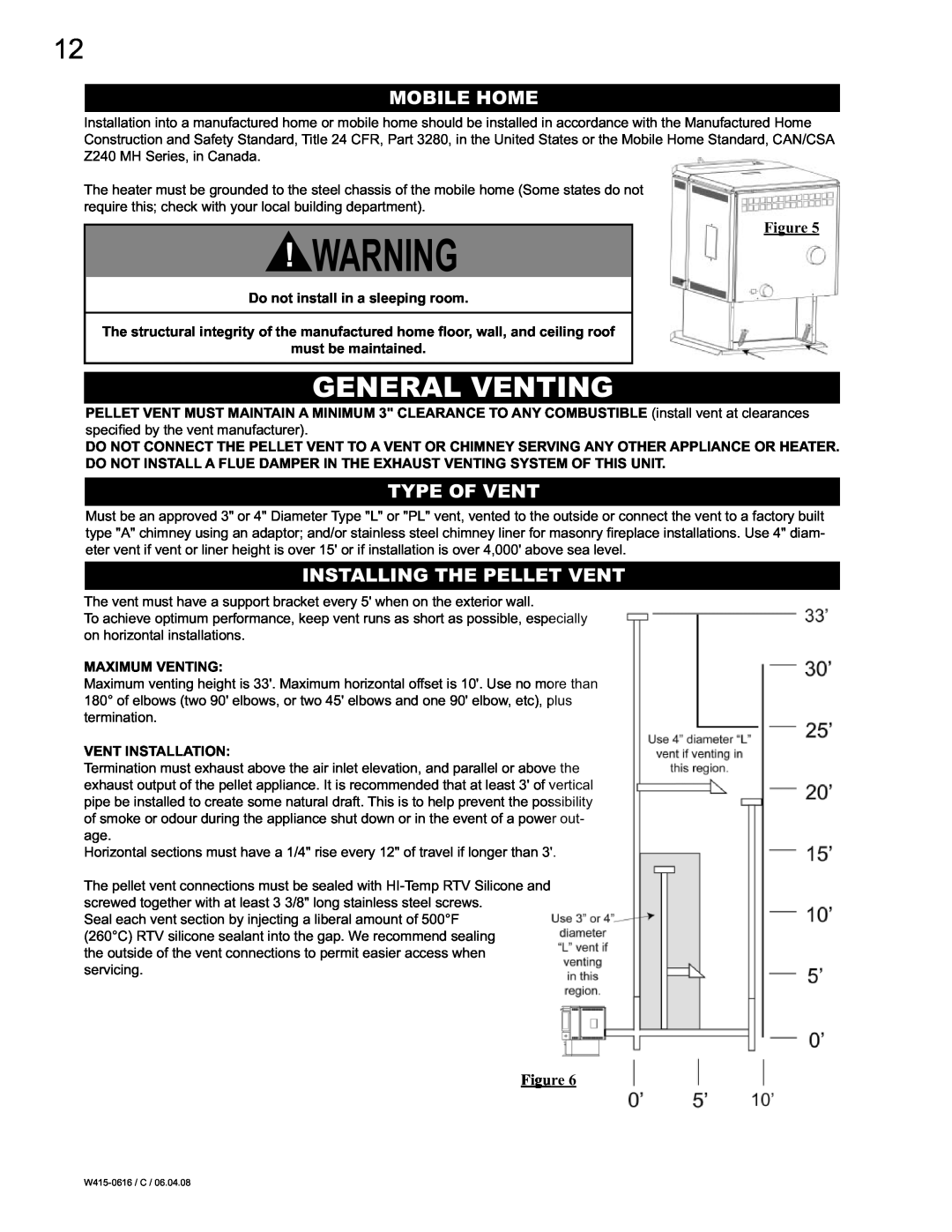
12
MOBILE HOME
Installation into a manufactured home or mobile home should be installed in accordance with the Manufactured Home Construction and Safety Standard, Title 24 CFR, Part 3280, in the United States or the Mobile Home Standard, CAN/CSA Z240 MH Series, in Canada.
The heater must be grounded to the steel chassis of the mobile home (Some states do not require this; check with your local building department).
!WARNING
Do not install in a sleeping room.
The structural integrity of the manufactured home floor, wall, and ceiling roof
must be maintained.
Figure 5
GENERAL VENTING
PELLET VENT MUST MAINTAIN A MINIMUM 3" CLEARANCE TO ANY COMBUSTIBLE (install vent at clearances specifi ed by the vent manufacturer).
DO NOT CONNECT THE PELLET VENT TO A VENT OR CHIMNEY SERVING ANY OTHER APPLIANCE OR HEATER. DO NOT INSTALL A FLUE DAMPER IN THE EXHAUST VENTING SYSTEM OF THIS UNIT.
TYPE OF VENT
Must be an approved 3" or 4" Diameter Type "L" or "PL" vent, vented to the outside or connect the vent to a factory built type "A" chimney using an adaptor; and/or stainless steel chimney liner for masonry fi replace installations. Use 4" diam- eter vent if vent or liner height is over 15' or if installation is over 4,000' above sea level.
INSTALLING THE PELLET VENT
The vent must have a support bracket every 5' when on the exterior wall.
To achieve optimum performance, keep vent runs as short as possible, especially on horizontal installations.
MAXIMUM VENTING:
Maximum venting height is 33'. Maximum horizontal offset is 10'. Use no more than 180° of elbows (two 90' elbows, or two 45' elbows and one 90' elbow, etc), plus termination.
VENT INSTALLATION:
Termination must exhaust above the air inlet elevation, and parallel or above the exhaust output of the pellet appliance. It is recommended that at least 3' of vertical pipe be installed to create some natural draft. This is to help prevent the possibility of smoke or odour during the appliance shut down or in the event of a power out- age.
Horizontal sections must have a 1/4" rise every 12" of travel if longer than 3'.
The pellet vent connections must be sealed with
Seal each vent section by injecting a liberal amount of 500°F (260°C) RTV silicone sealant into the gap. We recommend sealing the outside of the vent connections to permit easier access when servicing.
Figure 6
